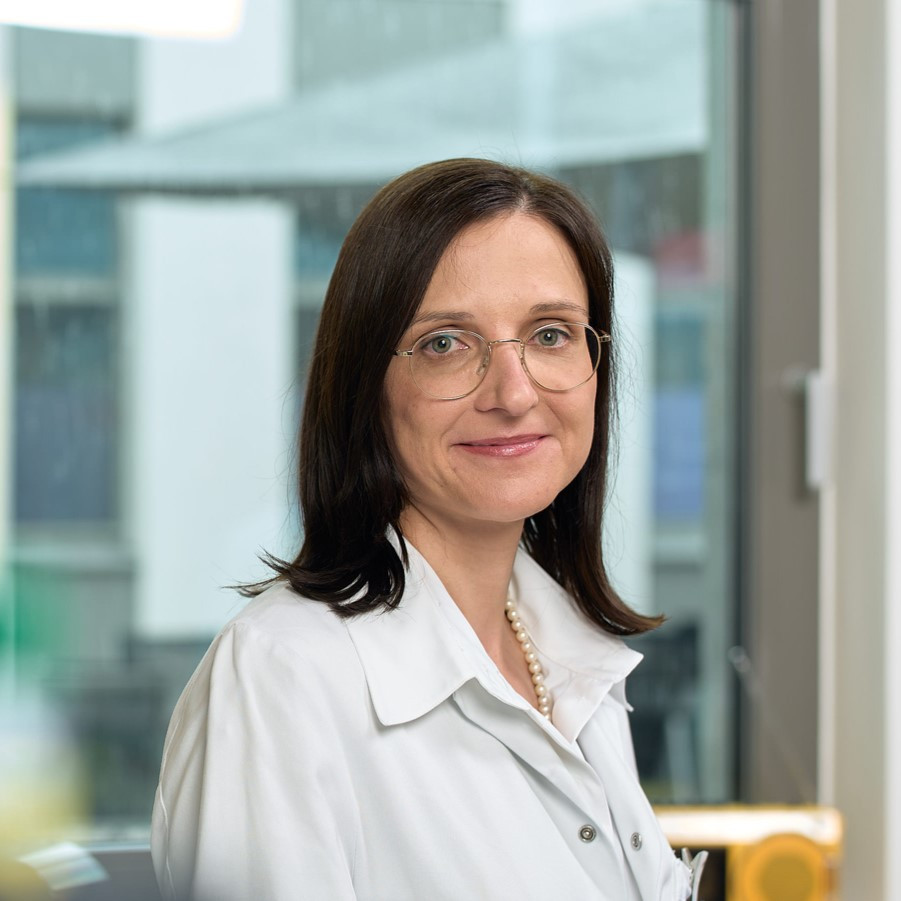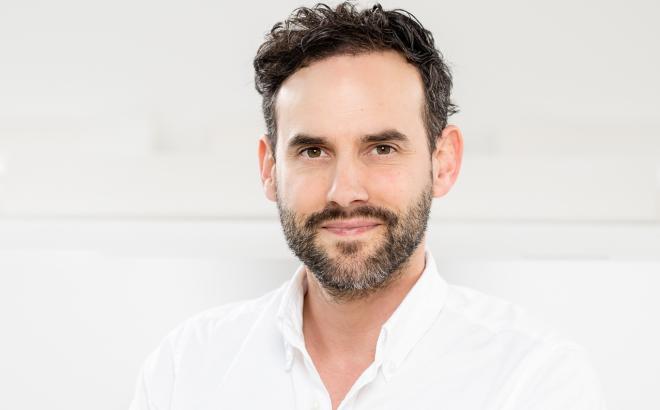Petra Georg, Radiation Oncologist
How does the method affect the patient?
Associate Professor Petra Georg, MBA, heads up the Clinical Division of Radiotherapy and Radiation Oncology at Krems University Hospital. She teaches at the Medical University of Vienna (MedUni Vienna) and Karl Landsteiner University of Health Sciences (KL). She has a Master degree in business administration (MBA) in healthcare management. At Krems University Hospital, she strives to establish the latest technologies and document and study their effects, with the aim of providing every patient with the best possible treatment based on the current state of knowledge. “We are currently focusing on updating our treatment concepts,” says Professor Georg, outlining the tasks that she has set herself. “Every indication requires an individual treatment plan in which the latest findings are implemented. We use modern equipment and systematically document effects and side effects so that we know exactly what happens to patients when a particular method is used. We are currently evaluating the data material available to us at present. In the future, our focus will turn to prospective data collection.”
As a doctor and scientist, Professor Georg knows how important data collection is as a basis for generating knowledge. During her medical studies at the MedUni Vienna, she completed a research stay at the Catholic University of Leuven in Belgium (1998–99) and was entrusted with the responsibility of overseeing the systematic recording of effects and side effects of postoperative radiotherapy for breast cancer at the University Clinic for Oncology. “Working at the Department of Radiotherapy in Leuven was a formative experience. I discovered my huge interest in research, really enjoyed the work, and was introduced to the subject of radiation therapy in the first place,” she explains. “Radiotherapy is not covered as a subject in its own right on many courses, so I hadn't had much contact with it as a student.” After completing her medical studies, Professor Georg initially returned to research and worked as a research assistant in the field of drug research at the University Clinic for Internal Medicine III at Vienna General Hospital. In 2004 she switched back to radiotherapy and completed her specialist training at MedUni Vienna. “Radiotherapy is a wide-ranging subject; after all, tumours can occur anywhere in the body,” she says, explaining why she chose a career in radiation oncology. “In this area, we also get a lot of feedback from our patients, as we care for them over an extended period of time, oversee their aftercare, observe changes due to the therapy and look after people throughout their treatment. That’s a lovely aspect of the job." Thinking back on her time as a junior researcher, she adds, “I was involved in research projects throughout my time training and working in radiation oncology. There’s nothing routine about research; you never know what you're going to find. You might well get different results than you expected. You have to keep working and making the best of it – that’s where having a real passion for research comes in. I’ve devoted many hours of my free time to research. I couldn’t have done it any other way, and the fact is that I’ve always enjoyed doing research. Ultimately, that commitment has paid off professionally.”
In 2013, Dr Petra Georg received her venia docendi for radiation oncology at MedUni Vienna, qualifying her to lecture at universities. In 2014, she moved to the MedAustron Ion Therapy Centre in Wiener Neustadt, where she initially became Director of the Clinical Studies department and continued her studies in the field of ion therapy. She was appointed Director of MedAustron in 2018. She managed clinical operations in radiation oncology and patient care at MedAustron until 2022. “My time at MedAustron was extremely interesting because we were dealing with rare cases of illness,” she says. “The clinic and the study department at MedAustron were very well connected, and I dealt with some very special cases.” Professor Georg has headed up the Division of Radiotherapy and Radiation Oncology at Krems University Hospital since 2022. “Now I’m at Krems University Hospital, I enjoy cooperating with the different professional groups and the variety of indications that we are presented with,” she says. “Research is what I personally enjoy the most. No matter what field I’ve been working in, I’ve always enjoyed collecting and evaluating data, so the opportunity to switch to a university hospital was very appealing. Here I can combine both aspects of my profession – clinical practice and scientific research,” says Professor Georg. She believes that radiation oncology should be an established part of the curriculum at KL: “I prefer to teach subject-specific topics and supervise doctoral students. I'd rather do that than lecture on general topics.”
Professor Georg was not the only expert to have come across to KL from MedAustron; the divisions of Radiation Oncology and Medical Physics are also headed up by MedAustron specialists. “We complement each other, so there are no major overlaps,” she adds. “At the University Hospital we cover a very wide range of tumours, especially breast, prostate and lung carcinomas, although particle therapy is the method of choice for very specific, often rare cancers. Things get interesting with cases where it is not yet clear which method is most effective or whether treatments that combine standard radiation therapy and particle therapy might represent the greatest chance of success. In Krems, we’re focusing on innovative treatment methods and a high degree of interdisciplinarity. My work is very wide-ranging and varied. My job is to contribute everywhere I can and bring our expertise to bear.”
Link to KL information system KRIS

Prim. Clin. Assoc. Prof. PD Dr. Petra Georg MBA
Division of Radiotherapy - Radiation Oncology (University Hospital Krems)




